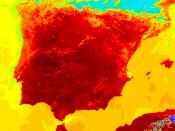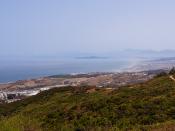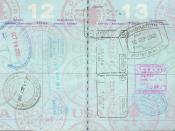1. Freedom from internal control
Nowadays, and thank to the Constitution, Spanish government respects fully all rights of its citizens. Now Spain has no official religion. The constitution disestablished the Roman Catholic Church as the official state religion, although more than 90% of the population are at least nominally Catholic. Spaniards can move within and outside the physical boundaries of their country with no required permission from the government. Both men and women have, legally, the same rights to undertake a new business and for equal job opportunities. The dignity of the individual, all rights he or she inherits, the free development of the personality, including religion, the respect for the law and other individual's rights are the foundations of the Spanish Constitution and lifestyle.
When the Spanish Constitution was established in 1978, after the dictator Franco's death, Spain started a process of conversion to freedom. Free of a dictatorship that forced Catholicism be the only religion; Spanish be the only language.
Spaniards did not enjoy equal job opportunities for both men and women, since women were supposed to serve men, be just the men's spouses. The different cultures within Spanish limits and besides the "pure" Spanish culture were pursued and, for instance, writers and political figures had to immigrate to other countries, such as Argentina and France, as political refugees. Things, fortunately, have changed in Spain.
2. Private property
Spaniards have the right to private property, so it is established in the Constitution. In the article #33, the Constitution states that in Spain "it is recognized the right to private property and to inheritance... and nobody will be thwarted of his or her goods and rights unless there is a just cause, either of public utility or social interest". Private business are also respected and protected by Spanish laws...


